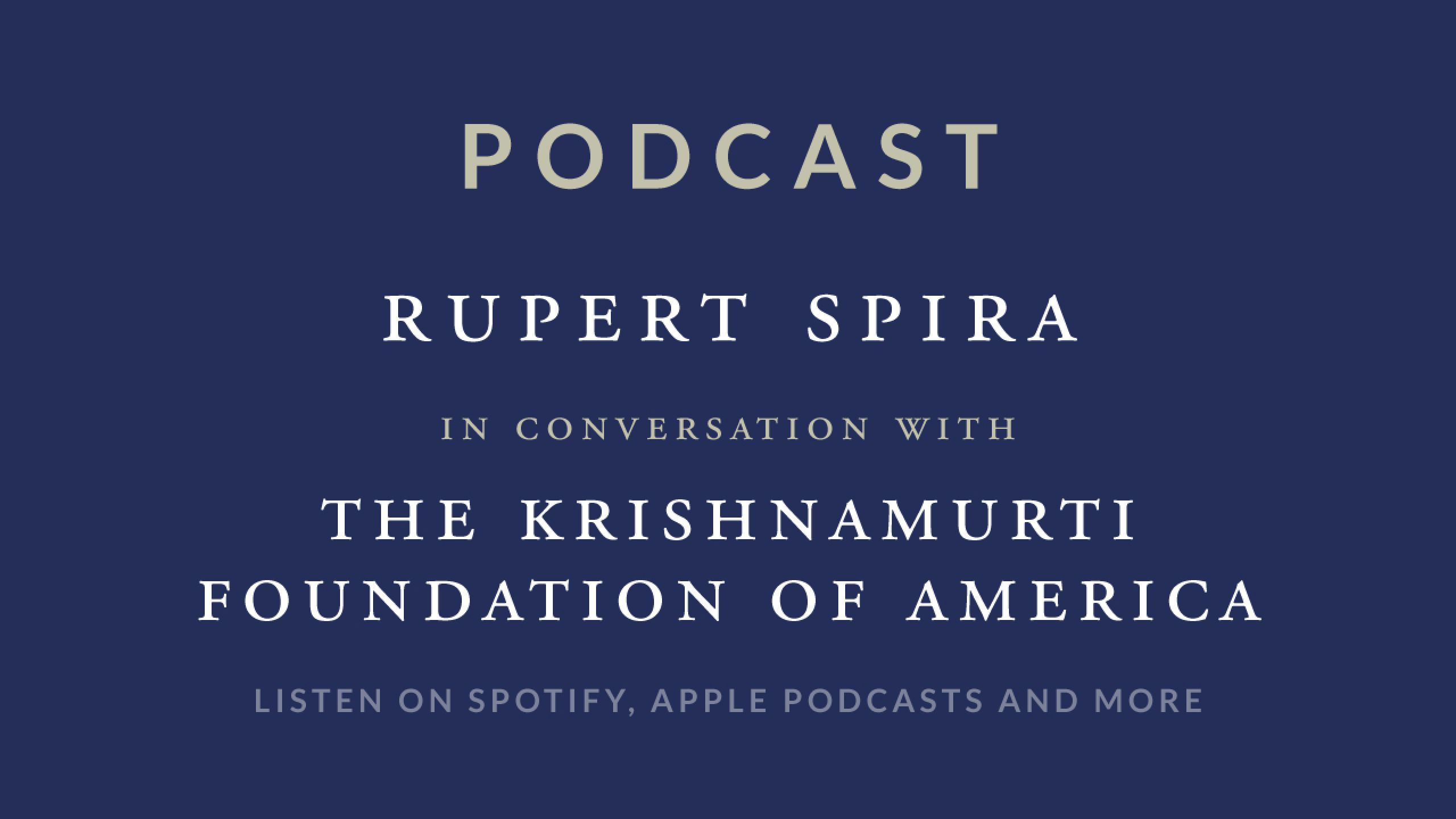According to Krishnamurti, there are three levels of awareness, the deepest of which sees how the self comes into being. His koan-like analogy of this level is given: the river has two banks, and we are on one of them, wishing for freedom or enlightenment, but that can only ever arise on the opposite bank. Rupert interprets this as Krishnamurti undermining the separate self’s search for freedom by undermining the reality of that very self that is seeking.
In response to Krishnamurti’s statement that ‘the unknowable is only possible when one dies to the known’, Rupert returns to his own John Smith/King Lear metaphor: If King Lear exists as an entity in the first place, in order for his essential nature of John Smith to be revealed, then yes, he has to die. But of course, at a deeper level, King Lear never existed at all.
There is discussion around the fact that saying anything about the nature of awareness tends to turn it into something we grasp at as an object of mind, whereas actual understanding is beyond words, thought and concepts. Also, what Picasso said about art being lies, but pointing to the truth, could equally be applied to spiritual teaching.
Returning to the issue of setting humanity free, Jaap asks Rupert what he feels is needed at this time in society, and in particular what would he want a young person to hear? Rupert says that one thing is required: the understanding that the very nature of our self, or being, is peace, and that our being is shared with everything and everyone. Love is the recognition of our shared being.
You can listen to this episode on the Rupert Spira Podcast.
https://rupertspira.libsyn.com/episode-25-the-krishnamurti-foundation-of-america
For more conversations, we recommend taking a look at our write up of Rupert's talk with Deepak Chopra
